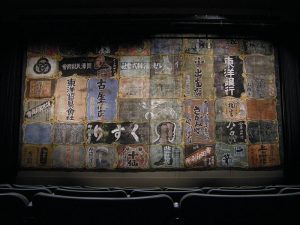マンション前に止まっている軽トラックと、運転席に座ってこちらを見ている男の姿とが、一瞬、白い花あらしの中に埋もれ、見えなくなる。
小池真理子「捨てる」
Which is it, umore or uzumore? There are a number of these verbs that cannot be distinguished simply by their okurigana or the grammar of the sentence. (We will deal with other examples in another post.) Without a gloss, we are left to the context to determine which of the readings (and thus meaning) is appropriate. So what of this case?
Let’s begin with umoreru (vi.). The Nikkoku (2nd. ed.) gives the following meanings: (1) to go under/into, or be covered by, something like snow or soil and disappear from sight (cf. uzumoreru and umoru); (2) used metaphorically, to be withdrawn (cf. uzumoreru), as in reserved, gloomy, or obscure.
And uzumoreru (vi.): (1) to be covered with something like snow or soil and disappear from sight, or to hide oneself by going deeply into something; (2) for a place to fill with things, people, etc.; (3) used metaphorically, to not be known, as in to be withdrawn, undervalued; and (4) to give oneself over to feelings such as sadness and despair.
The distinction is clarified here: the two words differ in the same way that uzumeru and umeru differ; that is, uzumu (vt.)/uzumeru (vt.) refer to covering something by heaping soil, etc., on top of it; umu (vt.)/umeru (vt.) refer to putting something into a hole, etc., and then covering that. In both cases the object disappears from sight.
Nikkoku identifies characteristic uses of various related words. For uzumu, “to pile a lot of soil, etc., onto something and thus cover and conceal it”; for uzumeru, “to fill a space with people or things, or to pile a lot of soil, etc., onto something and thus cover and conceal it”; for umeru, “to mix in another substance in order to modulate temperature or strength” or, metaphorically, “to make up for a loss or an insufficiency.”
So which is it, umore or uzumore? Since one key difference between the terms seems to be degree, and since presumably the truck is merely covered — not buried — in petals, this would likely be read umore.

Leave a Reply